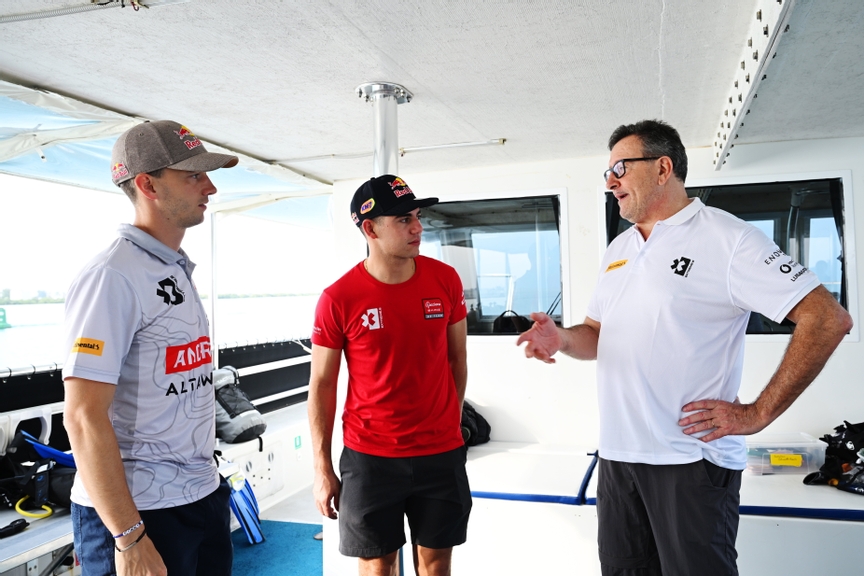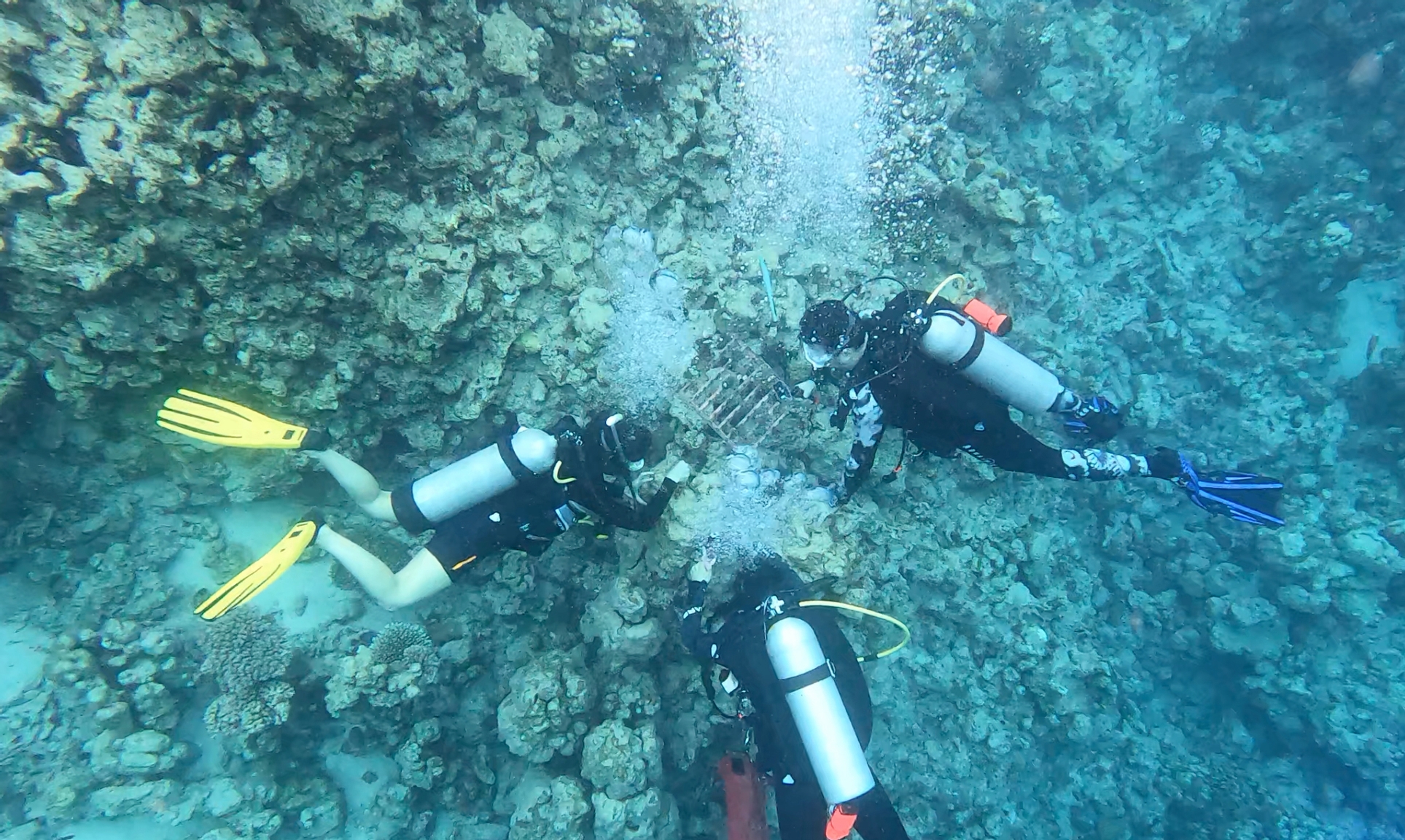
Extreme E begins coral protection initiative in latest Saudi Arabian Legacy Programme
The legacy project will focus on the global challenge of conserving and restoring coral reefs and the need to advance research and development, partnering with three organisations: G20 Coral Research & Development Accelerator Platform (CORDAP), King Abdullah University of Science and Technology (KAUST) and Ocean Revive. This latest programme is led by Professor Carlos Duarte of the series’ Scientific Committee.
Coral reefs are essential pillars of biodiversity, supporting one in four of all marine animal species in the ocean. In addition, they support the livelihoods of an estimated one billion people and protect the shores of vulnerable, low-lying island states, for which conserving coral reefs is an existential matter.
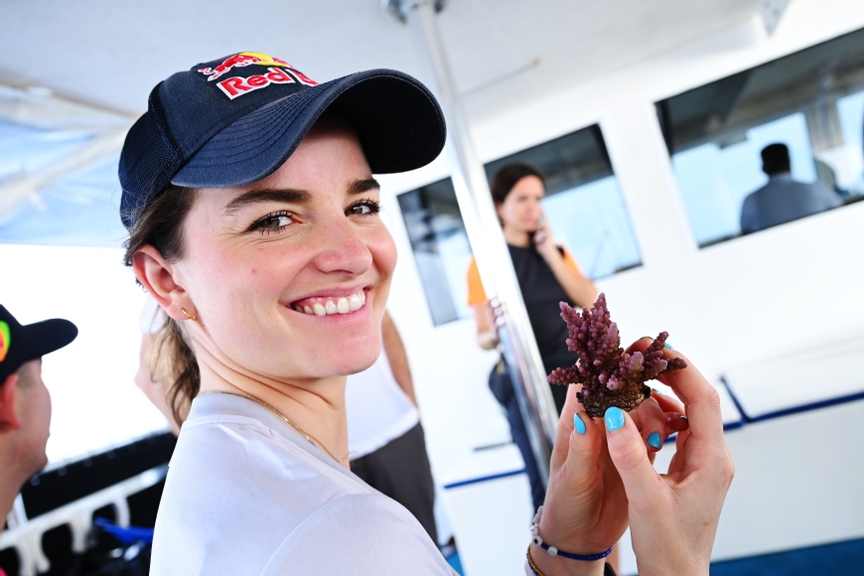
As a collaborative project, CORDAP will provide input on the global challenge to conserve and restore coral reefs and the need to advance R&D toward the overarching objective of coral preservation. KAUST will support the delivery of the largest coral nursery and gardening project in the world at Shushah island and new advances in coral ecology, and other relevant technologies delivered by the faculty. Ocean Revive is a start-up at KAUST, which will deliver the corals for the demonstration of coral outplanting and will provide also input of their technology and innovations.
For its legacy initiative, Extreme E drivers explored first hand the fragile nature of coral reefs and the crucial role they play by undergoing a coral planting exercise. They were then provided access to KAUST’s state-of-the-art marine research facilities, and partook in an evening with leading students from the university.
The health of coral reefs is a a critical stage. Coral reefs occupy less than one per cent of the ocean floor, however they inhabit more than 25 per cent of marine life.
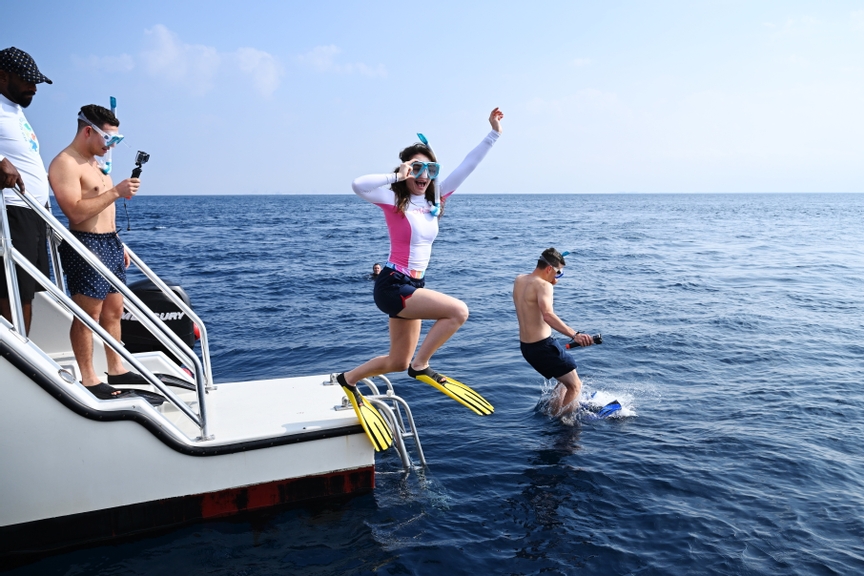
The planet has lost approximately half of the global ocean state of coral reefs, and yet, due to their vulnerability to marine heat waves, the Intergovernmental Panel on Climate Change (IPCC) projects that 75-90 per cent of remaining corals may be lost under climate change. That is even if the most ambitious target of the Paris Agreement to contain coral reefs within 1.5 Degrees Celsius above pre-industrial values is achieved.
As a consequence, coral reefs are regarded to be the first ecosystem at risk of functional extinction under climate change. Ahead of the Desert X Prix, the curtain raiser to the fourth Extreme E season, Extreme E will be making an important contribution to raise awareness of the vulnerability of coral reefs and the emerging solutions to address this global challenge at the interface of our climate and biodiversity crises.
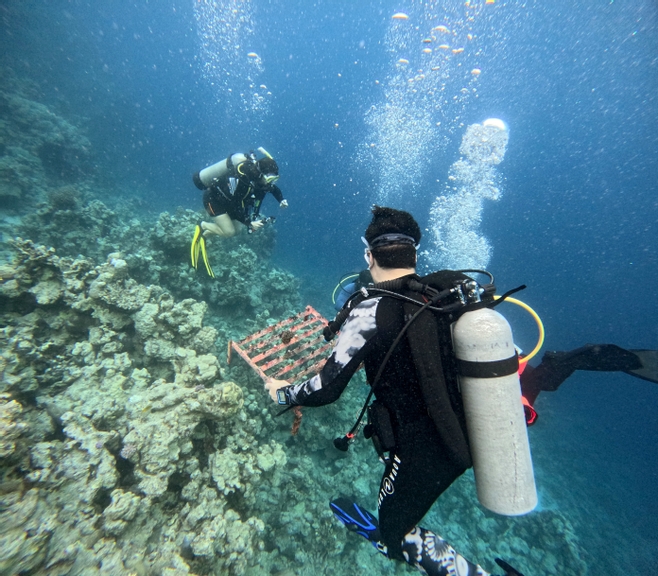
Professor Carlos Duarte, Extreme E Scientific Committee member and world-wide leader in biological oceanography and marine ecology research at KAUST, said: “We are honoured to be supporting the championship’s latest legacy initiative in Saudi Arabia alongside trusted partners CORDAP, KAUST and Ocean Revive.
“Coral is a vital part of the ecosystem in the Red Sea and with the help of Extreme E and our legacy project partners we can take an important step in supporting the preservation and restoration of coral reefs.
“Coral reef health is crucial to the planet amidst this climate crisis, and preserving and restoring will have long-term impacts to help support marine life, protect coastlines from erosion and preserve sources for food and medicine.”
